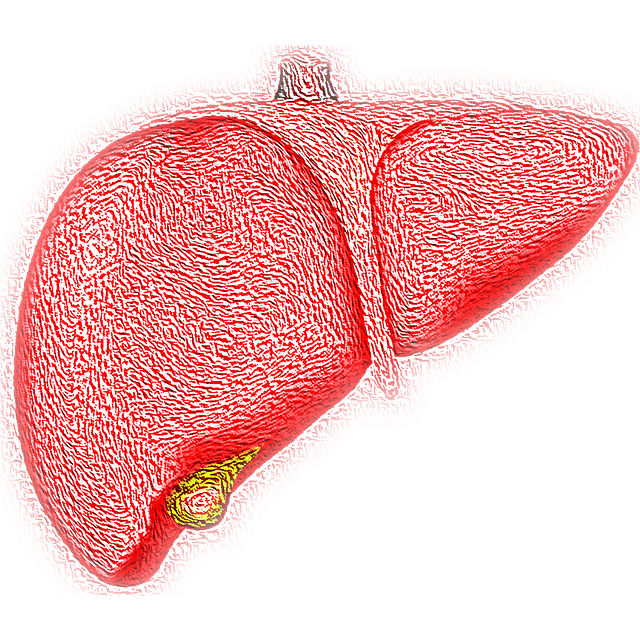Obesity is a significant risk factor for heart disease, which remains a leading cause of mortality worldwide. Understanding the intricate ways in which obesity impacts heart health is critical for both the prevention and management of cardiovascular disease.
The Burden of Excess Weight on Cardiac Function
Excess weight imposes a heavy burden on the heart, disrupting its function and structure. Each additional pound of body weight increases the demand on the heart to supply it with blood.
Over time, this constant overworking can cause the heart muscle to thicken, known as left ventricular hypertrophy. This adaptation can initially seem beneficial because it helps the heart pump more effectively against the increased body mass.
However, this change can eventually lead to heart failure, where the heart’s ability to pump blood falls behind the body’s needs. Beyond the strain on its pumping mechanism, obesity can also increase the likelihood of developing irregular heart rhythms, such as atrial fibrillation. This arrhythmia not only disrupts the efficient flow of blood but also heightens the risk of stroke and further complicates heart disease.
Obesity And Hypertension A.K.A. The Silent Killer
The link between obesity and hypertension is well documented. Excess fat, especially visceral fat around the abdomen, can secrete hormones and other substances that increase blood volume and constrict blood vessels, leading to higher blood pressure.
Elevated blood pressure strains the cardiovascular system, compounding the risks associated with obesity. Treating hypertension is complicated by obesity, as the usual dose of blood pressure medication might not be as effective. This is due to the increased body mass and metabolic changes that accompany excessive weight.
Heart Disease Symptoms May Not Show
Hypertension is often referred to as the “silent killer” because it typically has no symptoms until significant damage occurs to the heart and arteries. In individuals with obesity, the risks associated with hypertension magnify due to the presence of additional fat cells, particularly the visceral fat surrounding internal organs. These fat cells are biologically active and can produce a variety of substances that impact blood pressure regulation.
The Importance Of Visceral Fat
Visceral fat is a critical player in the development of hypertension. It releases a host of substances, including free fatty acids, which can impair the ability of blood vessels to dilate. Additionally, these fat cells produce angiotensinogen, a precursor to angiotensin, a potent blood vessel constrictor that is part of the body’s system for managing blood pressure. When you have more angiotensin, blood vessels constrict more often, increasing blood pressure.
The Role Of Insulin Resistance
The role of insulin resistance in the development of hypertension among obese individuals is also significant. When the body’s cells become resistant to insulin, as often occurs with obesity, the pancreas responds by producing more insulin.
High insulin levels can make the body retain sodium, increasing blood volume, which raises blood pressure. Furthermore, insulin resistance can cause changes in the arteries themselves, making them stiffer and less able to accommodate changes in blood flow.
Obesity and Inflammation
Obesity can also cause inflammation, which affects blood pressure. Adipose tissue, particularly in excess, produces inflammatory cytokines, which can lead to a systemic inflammatory state.
This inflammation can damage the kidneys, which play a critical role in blood pressure regulation by managing fluid and salt balance in the body. When the kidneys are impaired, they cannot eliminate excess fluid effectively, contributing to high blood pressure.
Obesity Hypertension and Drug Dosage
When it comes to treating hypertension in the obese population, there are unique challenges. The standard dosages of medications may not be as effective for individuals with higher body mass. Obesity changes the body’s pharmacokinetics—how drugs absorb, distribute, metabolize, and excrete.
Consequently, higher doses or more potent medications may be needed to achieve the same blood pressure control as in normal-weight individuals. Additionally, obesity can also lead to a condition known as resistant hypertension, where blood pressure remains high despite the use of multiple medications.
Obesity Management and Weight Loss
Therefore, managing hypertension in the context of obesity often requires a tailored approach. It involves medication and a concerted effort to reduce weight through diet and exercise. Weight loss, even in modest amounts, can profoundly affect lowering blood pressure.
It reduces the strain on the heart, improves the effectiveness of blood pressure medications, and even reduces the need for such medications over time. Combining weight management with medical therapy provides the best opportunity to control hypertension and minimize the risk of cardiovascular complications associated with both high blood pressure and obesity.
Obesity Impact On Lipids, Cholesterol, and Atherosclerosis
The dysregulation of lipids and cholesterol levels due to obesity accelerates the development of atherosclerosis, where plaques build up inside the arterial walls. These plaques are composed of fats, cholesterol, and other substances that can narrow and stiffen the arteries, reducing blood flow to the heart muscle.
Should a plaque rupture, it can cause a clot to form that may completely block the artery, triggering a heart attack or stroke. Managing cholesterol levels is thus an integral part of preventing heart disease, especially in individuals with obesity.
Obesity Inflammation and Cardiovascular Risk
Chronic inflammation is a hallmark of obesity, stemming from fat cells’ overproduction of inflammatory markers. This state of heightened inflammation exacerbates the development of heart disease by damaging the lining of blood vessels and contributing to the progression of atherosclerosis.
It also leads to endothelial dysfunction, a condition in which the inner lining of blood vessels fails to regulate blood pressure and clotting correctly. Additionally, inflammation can contribute to insulin resistance, further increasing cardiovascular risk.
The Metabolic Maze: Insulin Resistance and Diabetes
Obesity can impair the body’s ability to manage insulin and glucose levels, often leading to insulin resistance and type 2 diabetes. High levels of insulin and glucose in the blood can be toxic to blood vessels, accelerating the process of atherosclerosis and increasing the risk of heart attacks and strokes.
Managing blood sugar levels is crucial for heart health, especially in obese individuals. This management often requires a multifaceted approach, including medications to control blood sugar and cholesterol and lifestyle interventions.
Managing Obesity and Heart Disease Risks
Addressing obesity and its cardiovascular risks demands a comprehensive lifestyle modification strategy. This strategy should include dietary changes to promote weight loss and reduce the intake of saturated fats and simple carbohydrates, which contribute to obesity and heart disease.
Physical activity is equally essential; regular exercise can help reduce weight, lower blood pressure, improve cholesterol profiles, and enhance insulin sensitivity. Together, these changes can prevent the progression of heart disease and can even reverse some of the damage done to the cardiovascular system by obesity.
Comprehensive strategies to address obesity can drastically reduce these risks, highlighting the importance of weight management for cardiovascular health. The journey to a healthier heart for those with obesity is challenging but deeply rewarding, offering not only a longer lifespan but also a significantly improved quality of life.
Legal Disclaimer: The content provided on obesitywoes.com is for general informational purposes only. It is not intended as health advice, nor does it constitute a medical practitioner-patient relationship. The information may not be accurate, complete, or updated at the time of viewing. Obesitywoes.com and its authors disclaim all liability for any actions taken or not taken based on the content of this site. Always consult with a registered medical practitioner in your area before making any health decisions. This website may contain links to other websites. We are not responsible for the content, accuracy, or opinions expressed on such websites, and such websites are not investigated, monitored, or checked for accuracy or completeness by us.






